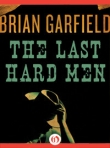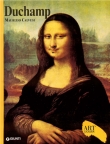
Текст книги "Jimfish"
Автор книги: Christopher Hope
Жанр:
Современная проза
сообщить о нарушении
Текущая страница: 3 (всего у книги 11 страниц)
CHAPTER 7
Moscow/Perm, 1987–9
Jimfish knew he might have died in Pripyat; perhaps he should have died, whether by firing squad or of radiation sickness like many bio-robots of Chernobyl. He had seen the good Jagdish cruelly killed by Big Ivan, whose life he had saved; he had watched his mentor Soviet Malala clumsily executed by a drunken firing squad. Yet for reasons he did not understand his life was spared and he had been flown – on the very plane in which he had arrived in Kiev – to Hospital Number 6 in Moscow, the sole establishment capable of dealing with severe cases of radiation sickness.
Thanks to special treatment his symptoms abated. The effects might resurface in years to come, he was told by the doctors, but for now he was fine. When Jimfish thanked the medical staff for their care, they replied that his brave work as a bio-robot on the roof of the ruined reactor at Chernobyl had won their admiration, even if they felt a certain regret that, having helped to save his life, he was to be transported to a distant penal colony as an American spy.
‘But I’m not a spy!’ Jimfish cried. ‘I am not even American. I come from a little town called Port Pallid in South Africa.’
But none of the doctors at Hospital Number 6 had the vaguest idea where South Africa was – and even if this were true, they asked, why was he not black?
The secret camp to which he was sent was known as Perm 35, one of a constellation of jails, mental asylums and penal colonies a thousand miles east of Moscow. It was a ‘special’ prison for ‘special’ prisoners, one of a type which the authorities claimed had been closed down, and so it did not officially exist. Row upon row of desolate wooden barracks where the huts were furnaces in summer and iceboxes in the snow, and the guards were paid extra well to see to it that prisoners never escaped. In any case, it would have been hopeless to have done so, because beyond Perm 35 stretched endless, empty forests.
Jimfish was happy to discover that many of his fellow prisoners were poets and philosophers; gentle people who helped him to learn some Russian and who talked about openness, renewal, liberty and love, much as they had been doing before they were arrested and sent to Perm 35. What he found hard to fathom was why they had been locked up for such talk. What would his old teacher Soviet Malala have said about this?
‘Obviously the Party in Moscow has made a mistake,’ Jimfish decided, ‘and as soon as this is corrected, we will be freed.’
His fellow prisoners were at first amused, then alarmed by a man so secure in his ignorance, so quick to take moral positions, so blind to what was in front of his nose that he must be a holy fool, a lunatic or even an American, as the authorities in Moscow had charged.
Jimfish had spent a couple of years in Perm 35 when one day without warning he was freed from his cell, driven to an airport and placed on a plane, which took off for an undisclosed destination. It was November, snow was falling and, looking down upon the vastness of Russia below him, he wept when he recalled the fate of Jagdish, dead in Reactor Number 4, and Soviet Malala, shot for all the wrong reasons in the ghost city of Pripyat.
Some hours later the plane circled above a city seemingly cut in half by what looked like a long wall, but he had no idea where he might be. Only when he had been securely locked in a new prison cell did an officer from State Security (its motto: ‘The Sword and Shield of the Party’) inform him that he was in Berlin, a guest of the German Democratic Republic. As an important American spy he would be exchanged for an important Soviet agent. A few days later the same man from the Stasi took him to a place called Checkpoint Charlie to rehearse the coming exchange. Curious, as always, about the traditions of foreigners, Jimfish asked him about the long dividing wall he had seen from the air.
‘It is not a wall,’ the Stasi officer told him. ‘We never use that word. What you see is an anti-fascist protection rampart running for a hundred miles, consisting of concrete, wire mesh, trenches, fences, mines, listening devices, dogs and armed guards.’
‘Is it there to keep people in or out?’ Jimfish asked.
‘It’s there to protect us from the subversion and aggression of those on the western side of the rampart, and thus on the wrong side of history,’ came the reply. ‘The guards are ordered to shoot anyone silly enough to try crossing to the other side.’
From which Jimfish concluded that anyone even glancing across the rampart was already on the wrong side of history.’
The Stasi officer agreed. ‘Being wedded to the purest form of socialism, we occupy that point where history ends; we are its culmination and its apotheosis. In other words, the right side of history is us.’
Jimfish was deeply impressed and longed for the day when he would be closer to that point himself.
His cell included a small television set on which he saw, day after day, political speakers addressing large crowds in the streets. None of it did he understand, but he took it that the speakers were assuring the crowds that they were wedded to the purest form of socialism, as well as being the culmination of history. But the crowds seemed to listen less and less and took to climbing the anti-fascist protection rampart and riding on it, as if they were children and it were a nursery rocking horse instead of a concrete barrier many miles long, bristling with guards, dogs and barbed wire. Next, the climbers began chipping away at the antifascist protection rampart, using hammers and chisels, and no one came to stop them. It was all very puzzling.
At night Jimfish lay in his cell listening to chisels chinking on concrete, as if legions of steel-beaked woodpeckers were chipping to bits the anti-fascist protection barrier. Soon there were large holes everywhere and people walked through these gaps, helped by the very guards who, just days earlier, were ready to shoot anyone who did this.
Jimfish’s TV screen began showing pictures of whole families of East Germans clambering though holes in the barrier and heading into western Berlin, stopping to stare for long minutes at cakes and shoes and pickles in the bright windows of the supermarkets, or wandering down Martin-Luther Strasse, awestruck by billboards advertising ‘Big Sexy Land’. If the western side of the barrier was on the wrong side of history, why did these people want to go there?
Jimfish wished he could have talked this over with his mentor Soviet Malala: surely he would have known why the world seemed so suddenly to have been stood on its head; why the barrier had great holes in it and why State Security headquarters, where he had been locked up, had gone so very quiet. It was the strangest feeling: his prison, a hubbub of clanging cell doors and shouted orders, was suddenly as silent as the grave.
CHAPTER 8
East Berlin, 1989
When Jimfish tried his cell door, it was unlocked and he wandered at will in the deserted building, lights left burning, filing cabinets open, office after office knee-deep in ribbons of shredded paper, as if someone had wanted to destroy as many files as possible. When he walked outside he was swept up in crowds chanting ‘Wir sind eine volk!’, which, as he spoke Afrikaans, he understood to mean ‘We are one people!’ But why should they insist on it? he wondered. What else could they be?
Jimfish shouldered his way through the jubilant throngs, left the deserted Stasi Headquarters and walked to the once-imposing Protection Rampart, now torn by gaping holes. A smiling border guard happily helped him to clamber through a gap into the western side of town, where an official greeted him with an envelope stuffed with a hundred German marks. Jimfish understood not a word but his benefactor’s demeanour told him that the cash was ‘welcome money’, a gift to spend in the gigantic street-party that engulfed Berlin. So it was that each day he joined the joyous, tipsy crowds carousing from Karl-Marx-Allee in the East to the Kurfürstendamm in the West, returning in the evening to sleep in his old cell at Stasi Headquarters, barely aware of the days flying by. Before he knew it, November had gone and with it all but the last pfennigs from his stash of welcome money. From what he had seen of the heart of newly unified Berlin, Jimfish felt that the welcome cooled as his money dried up, and he knew he would have to move on.
One evening in the midst of the singing, dancing, ecstatic tumult, Jimfish noticed a small man, well muffled against the winter cold, wearing a black conical astrakhan hat. He seemed alarmed by the fierce joy of the crowds, shaking his head and repeating again and again: ‘It’s time to change, it’s time to change.’
‘What? Do you mean the way this country is run?’ Jimfish asked him.
‘No, no,’ said the little man. ‘This is not change. It’s anarchy. I mean it’s time for me to change my clothes and have them burnt. I have done so every morning all my life. But my staff deserted me to gape at this hysterical rabble and I’ve not put on a clean suit for days.’
‘But why burn your suit after wearing it just once?’ Jimfish asked.
‘To protect myself against radioactive contamination. Even when I went to visit the Queen in Buckingham Palace in London I took a fresh suit for each day, as well as my own sheets. Her Majesty made me a Knight Grand Cross of the Most Honourable Order of the Bath, but I’d give my knighthood away right now for a fresh change of clothes. And a shower.’
‘Well, if it’s contamination that worries you, then steer clear of me,’ warned Jimfish. ‘I’ve spent time in Chernobyl putting out the fire and my radioactive reading is probably off the scale.’
‘If you’ve been in the Soviet Union then yours will be socialist radiation from the peaceful atom. And it is to a semblance of socialist order that I must return very soon. Do you happen to know what Lenin said in 1903?’
Jimfish had to confess he did not.
‘He said: “Where one or two socialists are gathered, there the glass must be raised.” From which part of the world are you?’
‘Africa,’ said Jimfish.
‘I have a great friend in Africa. He runs Libya and comes to visit us often. We are brothers under the skin. He is called “The Guide” and I am “The Genius of the Carpathians” or, if you prefer, the “Danube of Thought”. As a socialist you should get out of this country right now before you catch whatever contagion is on the loose and go back to Africa.’
‘That’s not possible. I have nothing. No money and no transport,’ Jimfish confessed.
‘Then come with me,’ said the little man in the black conical hat who burnt his suits each day. ‘I have a helicopter waiting.’
He hurried Jimfish into a huge palace, ablaze with light. ‘This is, or was, the home of my old friend Erich, the ruler of the German Democratic Republic, until he made an unfortunate series of missteps.’
Jimfish gazed at the blazing forests of chandeliers, neon and fairy lights that lit up the vast palace, admiring especially the veritable zoo of stuffed animal heads everywhere on the walls.
‘He owns a lot of lights, your friend.’
The Genius of the Carpathians nodded. ‘This palace is known to locals as “Erich’s Lamp Shop”, because he can afford so many lights and everyone else must make do with a few weak bulbs.’
Jimfish could not help smiling and before he could compose his face, the little man frowned.
‘Allowing jokes was just one of Erich’s missteps. The other mistake was his wall.’
‘You mean putting it up?’ Jimfish asked.
‘Not at all.’ The little man shook his head so vigorously his conical hat almost flew off. ‘His mistake was to let it fall. This is a leader who said, just the other day, that his wall will be standing in fifty or a hundred years. But as you have seen, it is being pulled down before our eyes, without so much as a by your leave! The guards who yesterday were primed to shoot escapees are today helping little old ladies to scrabble through the cracks and claim their one hundred marks welcome money from the West Germans, then head out to shop in the Kurfürstendamm. It’s disgusting! Let’s leave this failed state before we are polluted.’
‘Shall we switch off some of these lights first?’ Jimfish asked. ‘Or Erich will face a very large electricity bill when he gets home.’
‘He’s unlikely to be back this way,’ said the little man. ‘He left a few hours ago for Moscow. Now follow me.’ He led the way down some stairs and into a secret tunnel. ‘This is an emergency route Erich built in case he ever needed to leave quickly and quietly.’
The Genius of the Carpathians and Jimfish hurried along the tunnel beneath Erich’s Lamp Shop, passing under the Schlossplatz, and came out in what had once been the stables of the German emperor on the banks of the Spree river. And here a helicopter was waiting, its rotors whirling.
CHAPTER 9
Bucharest, Romania, 1989
As the helicopter rose, Jimfish could see below him the wall that once divided the city pocked and perforated by the iron beaks of hundreds of human woodpeckers. The Genius of the Carpathians sat beside him, rehearsing a speech he was to make as soon as he arrived home.
‘There has been a little bit of difficulty in my country. Doubtless encouraged by the appalling events of the falling wall in Berlin. Instead of doing the decent thing and sending in the tanks, our Russian friends have been unhelpful. They keep talking about what they call “openness” and “reconstruction”. This is madness. As my old comrade Kim Il-sung likes to say, “The openness we need is found in the barrel of the gun.” And as for “reconstruction”, that’s for reactionaries. We true Communists prefer cementation. Provocation must be crushed.’
The pilot of the helicopter was on the radio and told his chief what he was hearing: ‘It’s more than provocation, sir. It’s wholesale insurrection in Timişoara and Bucharest.’
The little man was having none of it. ‘As soon as we touch down in my capital, I will address the cadres, structures, formations and Party elements and all dissenters will be obliterated.’ And then, looking down from a great height on his capital city, he formally welcomed Jimfish to the Socialist Republic of Romania.
‘I feel I have built the place myself.’
As the chopper dropped lower, Jimfish could make out among the huge buildings tiny, ragged creatures wheeling sticks of firewood along icy boulevards. When he remarked on how lone and lost they looked, the little man in the conical astrakhan hat smiled at his ignorance.
‘Those are individuals and do not count. Only the masses have weight. When we speak, thousands are wheeled out to applaud and then loosed against the provocateurs. Wait and see.’
As they prepared to land he pointed to various landmarks. ‘You can see the Palace of the People, a monument to the Party and the masses, inspired by a similar marvel erected by my friend Kim Il-sung, that pharaoh amongst pygmies. But mine is larger.’
Jimfish said he had never in his life seen anything so big.
The Genius of the Carpathians nodded so happily his conical astrakhan hat wobbled. ‘I wanted it to be seen from outer space. To build it, we first knocked down most of the old historical centre of Bucharest, along with a couple of dozen churches, six synagogues and got rid of no fewer than thirty thousand houses.’
‘Why did you do that?’ Jimfish asked.
His friend smiled. ‘My capital city was once known as Little Paris. But I came, I demolished, I redeveloped. And Little Paris became Big Bucharest.’
The helicopter put down on the roof of a tall building that his friend identified as his home from home, the Central Committee of the Communist Party. Waiting to greet them were army officers, policemen, bodyguards and important Party officials in big caps with huge peaks and Jimfish began to appreciate how special his new friend was. Whenever he spoke, everyone in hats clapped in unison and took up the chant: ‘Ni-co-lae Cea-oooo-şes-cooo… Romaneeeeaaah!’
Among the welcoming party was a stern woman and she now called out to the Danube of Thought: ‘For heaven’s sake, Nicolae! You look like a tramp. I can see you haven’t changed your clothes in days.’
Whereupon the little man turned pale and went into a huddle of security men, in a manner Jimfish had seen on a rugby field, when a player wished to replace his torn shorts in a modest manner. When he emerged he wore a new suit, although whether his astrakhan hat had been replaced Jimfish could not tell.
‘Now burn the old suit,’ ordered the stern woman. ‘It’s sure to be infected with Falling Wall syndrome.’
Just how important she was Jimfish understood when his friend introduced her: ‘This is Lenuţa, Deputy Prime Minister, Mother of the Nation, Head of the Cadres Commission, Revolutionary Fighter for the Motherland, as well as being my wife.’
Lenuţa straightened Nicolae’s conical hat, fussed with his scarf, buttoned his winter coat, and Jimfish was invited to accompany the presidential couple, police officers, bodyguards and bulky Securitate agents to the balcony overlooking the gigantic square, where thousands waited in the December chill. Even though Nicolae had been rehearsing his speech on the helicopter, he was slow in getting started and mumbled a lot.
The Deputy Prime Minister kept hissing at her husband, ‘Speak up, Nicolae!’
The helicopter pilot interpreted Nicolae’s remarks for Jimfish, who got the impression that depite rehearsing his speech, Nicolae was floundering. He spent long minutes greeting the municipal workers, soldiers and city councillors. The crowd muttered and hissed and, although some factory workers clapped, rattling their banners in support, the muttering and hissing in the square grew noisier as Nicolae sputtered on. Suddenly, a series of explosions that might have been fireworks or even gunshots were clearly audible. Nicolae became very irritated and banged the microphone, shouting ‘Halloo! Halloo!’ in the manner of a schoolmaster chivvying his pupils. Then there began a sound no one had heard in decades, when the Genius of the Carpathians addressed the nation: a hullabaloo so brazen and impudent that everyone on the presidential balcony refused to believe what their ears told them.
‘Surely it’s the wind wafting your achievements to the world,’ said a Securitate officer.
‘Or a choir of owls saluting the greatness of your genius,’ said a second man.
These artful attempts to explain the angry booing that interrupted Nicolae’s speech from the balcony were received in silence by the Genius of the Carpathians.
Lenuţa knew instantly that something alarming was happening, and shouted, ‘Speak to them, Nicolae!’
In the pandemonium, her orders seemed to Jimfish as fruitless as the helicopters he’d watched sprinkling sand on the flames of the Chernobyl reactors. The leader’s bodyguards now decided it was time to put a good deal of space between themselves and the mob.
A Securitate man dared to interrupt the leader. Sidling up to him, he tapped Nicolae on the shoulder: ‘We could use the tunnels below the square, which you, sir, had the foresight to build.’
The Danube of Thought shook his conical hat. ‘That way we’ll end up in the middle of these madmen, like moles coming up in the neighbour’s garden; they’ll reach for a spade and smash our heads in. Better we take the helicopter to a friendly barracks, return in force with loyal soldiers, then shoot everyone who opens his mouth.’
The functionaries on the balcony agreed this was a sound idea and hurried the presidential couple into the lift and up to the roof of the Palace of the People, while far below the angry mass in the square surged around the walls of Party Headquarters like a wild sea.
Perhaps he had come at last, Jimfish realized, face to face with the rage of the lumpenproletariat. Yet how could this be, in a land devoted to the health and happiness of just that favoured class whose champion was Nicolae Ceauşescu and whose side he was on? If history had so very many sides, however would he know the right one?








